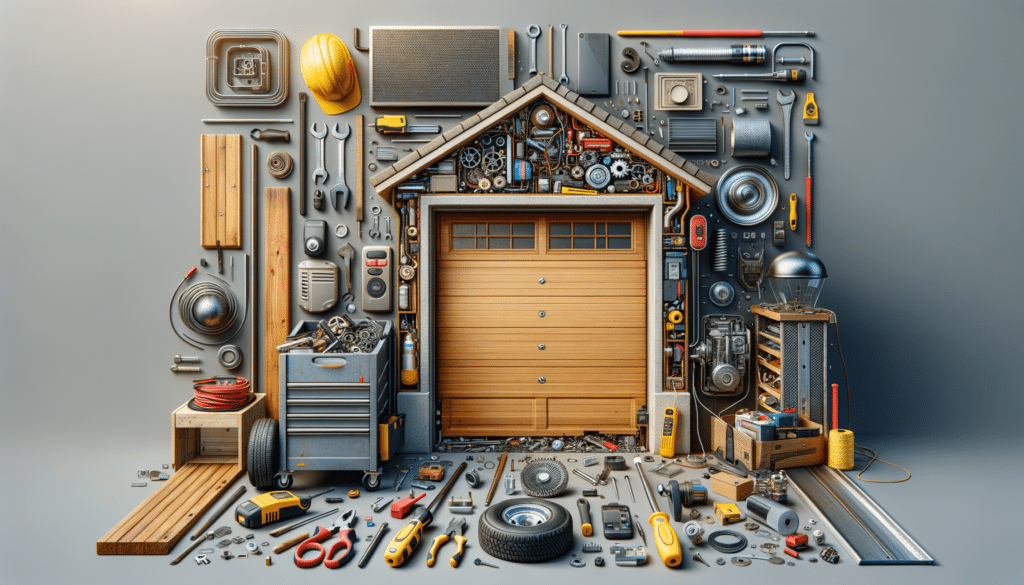Understanding the Different Types of Garage Doors
Garage doors come in various styles and materials, each offering unique advantages. Common types include sectional, roll-up, slide to the side, side-hinged, and tilt-up canopy doors. Sectional garage doors are popular due to their durable construction and efficient use of space, consisting of panel sections connected with hinges. Roll-up doors are ideal for spaces with limited ceiling room, made from steel slats that roll around a drum. Slide to the side doors operate by bending to one side of the garage, making them suitable for garages with little headroom. Side-hinged doors, resembling traditional barn doors, open from the sides and are often chosen for their classic appearance. Tilt-up canopy doors are a single solid piece that tilts up into the garage ceiling. Selecting the right type of garage door depends on factors such as space availability, aesthetic preference, and budget considerations.
Materials and Their Impact on Performance
The material of a garage door significantly influences its durability, maintenance needs, and insulation properties. Steel doors are highly regarded for their strength and low maintenance, often featuring a wood-grain texture to enhance their aesthetic appeal. Aluminum doors are lightweight and resistant to corrosion, making them suitable for humid environments. Wooden garage doors offer a timeless and elegant look but require regular maintenance to prevent warping and rot. Fiberglass doors are known for their resistance to denting and cracking, although they may fade over time. Vinyl doors are durable and require minimal upkeep, providing excellent insulation. When choosing a material, consider the climate, maintenance willingness, and desired appearance of the garage door.
Common Garage Door Issues and Troubleshooting Tips
Garage doors are subject to wear and tear, leading to various malfunctions. Common issues include the door not opening or closing properly, unusual noises, and slow response times. A door that refuses to open may have a broken spring or cable, requiring professional repair. Noisy doors can often be quieted with lubrication of the moving parts. Slow response times might indicate problems with the garage door opener or remote control. Regular maintenance, such as tightening loose hardware, checking the balance, and testing the auto-reverse feature, can prevent many issues. For persistent problems, consulting a professional repair service is advisable to ensure safety and functionality.
The Importance of Regular Maintenance
Regular maintenance of a garage door is essential for its longevity and efficient operation. Routine checks and services can prevent costly repairs and enhance safety. Key maintenance tasks include inspecting the door’s balance, lubricating moving parts, and checking the weatherstripping for damage. It’s also important to test the door’s reversing mechanism to ensure it functions correctly. Regularly cleaning the door and its components can prevent grime buildup that may affect performance. Scheduling annual professional inspections can help identify potential issues early and maintain the door’s optimal condition.
Choosing the Right Garage Door Repair Service
Selecting a reliable garage door repair service is crucial for addressing issues effectively and safely. Look for companies with a strong reputation, verified customer reviews, and appropriate licensing and insurance. A reputable service provider should offer transparent pricing, warranties on repairs, and experienced technicians. It’s beneficial to choose a service that provides emergency repair options, ensuring quick response times in urgent situations. Comparing multiple service providers and requesting quotes can help in making an informed decision. Prioritizing quality and reliability over cost can lead to better long-term results and peace of mind.





